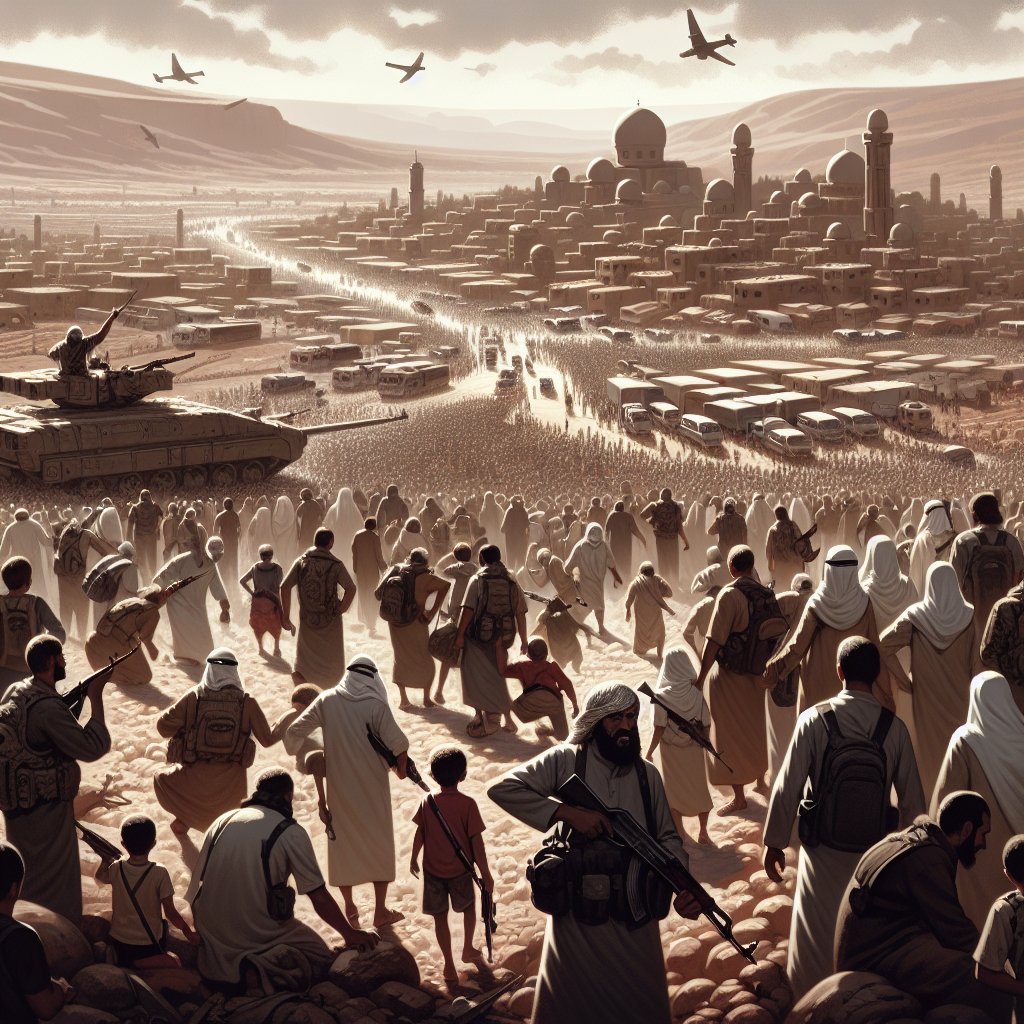Content created by AI
Escalating Tensions in Sudan: Civilians Arm Themselves as Paramilitary Forces Advance
South Sudan is teetering on the brink of a Civil War, as recent developments see the proliferation of arms among civilians in response to the aggressive territorial expansion by Sudanese paramilitaries. The Rapid Support Forces (RSF), a powerful paramilitary unit, has captured strategic locations, escalating an already tense situation into a potential full-blown conflict.
This paramilitary group, originally under the control of the Sudanese government, has advanced through Al-Jazira state, taking over its capital, Wad Madani, and moving into the adjacent Sennar state. Civilians, caught between the RSF and the army, and fearing for their safety and rights, have begun to organize. Calls for "armed popular resistance" are being echoed across various states, including White Nile, River Nile, Gedaref, North, Kassala, and Red Sea.
The fighting that has been ongoing since April 15 is ostensibly a power struggle between the army chief Abdel Fattah al-Burhan and RSF commander Mohamed Hamdan Daglo. The human cost of this conflict is disturbingly high with over 12,000 lives lost according to the Armed Conflict Location and Event Data Project, and the UN reporting that 7.1 million people have been displaced, with 1.5 million seeking refuge across international borders.
Local leaders are encouraging the militarization of their youth. At a rally in Shendi, River Nile state governor Mohammed Badawi advocated for training youngsters in weapons to defend their communities. Similar sentiments have come from a Beja tribal leader, Mohammed al-Amin Turk, in the coastal city of Suakin, demonstrating a growing consensus for voluntary civilian armament to counter RSF aggression.
However, this surge in weapons among civilians seems to be fuelled by the RSF themselves, as evidenced by reports of the paramilitaries distributing firearms in Al-Jazira state—a strategy that could help consolidate their control of conquered territories. The ramifications of such proliferation are worrisome, especially in regions like Darfur, which have a history of deadly violence, underscoring fears that this conflict could evolve into a wider civil war, jeopardizing the entire nation.
Despite the availability of weapons—6.6 percent of Sudan's 48 million population are armed per the Small Arms Survey project—security officials worry about the exacerbation of violence in a nation already suffering from widespread arms dissemination. Government estimates suggest there are about five million weapons in civilian hands, not counting those wielded by rebel groups in conflict-heavy states.
Sudanese authorities had relaxed regulations on firearms acquisition even before the conflict, leading to a surge in ownership, often fuelled by smuggling operations from neighboring countries. Civilians like Al-Jazira state resident Yussef Ali are resolute in arming themselves amidst the chaos, emphasizing the dire conditions of living that have pushed them to prioritize weapons over basic necessities like food.
There are pleas from civil society leaders, such as Sherif Mohammed Othman of the Forces for Freedom and Change, to seek an end to the conflict through negotiation rather than arms. The call to arms only promises to extend the duration of the war, with no clear victory in sight for either side. As the crisis unfolds, it becomes critical for Sudan to find a peaceful resolution, or face the grim reality of a conflict that has the potential to tear the nation apart.










